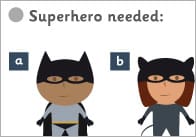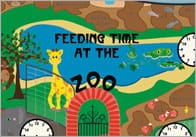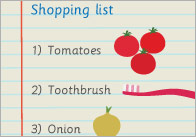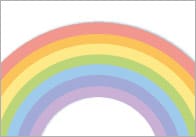Don’t Just DO Maths, LIVE Maths
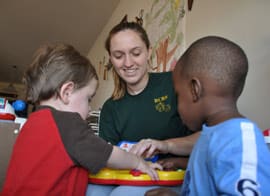
I felt empowered…triumphant. For years I had believed I couldn’t do maths and now, as a woman in my 40s, I had successfully worked my way through a maths problem during a school INSET day. This was my significant mathematical moment…until the trainer asked us to talk to those around us and share how we had worked it out.
As I listened to the other teachers my heart started pounding, my palms became clammy, my stomach churned and the tears pricked my eyes. Suddenly I was back in school, listening but not understanding. I realised that, despite my hard work, my working out was fatally flawed and I had missed the point. I started to cry!
Looking back I can trace my “maths phobia” to my primary school where I usually received a C minus for maths. I remember having to take pages of fractions home because I wasn’t very good at them. ‘O’ Level Maths was a great challenge. If I was to become a teacher, my dream since the age of 11, then I needed this all important subject. But as I walked out of the exam the teacher, who was standing at the door, told me not to worry because he had already put me down for the retake! Imagine his surprise when I managed to achieve a B, although it had simply been a case of “cram as much in your head before the exam and then simply regurgitate on paper”.
But I still constantly battle with my feelings of inadequacy and bewilderment when it comes to maths. This is how I ended up designing and delivering maths training for early years practitioners. I vowed that no child should leave Reception feeling that they “hate” or “can’t do” maths. I have found it is easier to think of maths as part of Understanding the World, as that is precisely what it is – a way of making sense of and seeing the patterns in the world around us.
I have recently done several Profile moderations in school and because of the raised expectation (and formal language used) in the maths early learning goal a number of teachers had resorted to worksheets as their evidence. Maths, for many of these children, has been reduced to getting right answers and the approval of the teacher, rather than an exploration of the world and possibility thinking. Many people have failed to spot the maths that takes place during children’s play.
I recently had the privilege of spending a day at the Rainbow Centre in Marham, Norfolk, where, with Talk 4 Meaning colleagues, Michael Jones and Steve Grocott, we led a day of maths and language. My only aim was that practitioners would be able to spot the maths that was taking place during play and so I set up an area of cardboard boxes and encouraged the practitioners to watch and listen. Children were demonstrating an understanding of one-to-one correspondence as they counted out enough boxes for each child to sit in. They were aware of the properties of shapes as they built structures using appropriate boxes. They could see the relationship between 2D and 3D shapes as they assembled the flattened boxes. One boy built an aeroplane and talked about how he needed longer wings. Another built a tower describing it as taller than everyone.
Then the practitioners became more involved, supplying additional resources and adding extra challenge. We also had a “how many?” competition – how many children could we fit in a box? We worked out you could fit in 4 when seated, but 8 when standing up, and one boy made marks on the box to indicate how many.
I demonstrated my mathematical chatterboxes by just sitting under a tree and seeing who came. Fortunately I was not disappointed as children’s curiosity drove them to see what I had in my box. Then a conversation generated about the contents as children explored shape, size, number, similarities and differences etc. Much more effective than pulling children away from what they enjoy to “do” an activity with a practitioner!
This was the tip of the mathematical iceberg as so much more went on during the day. Maths was not something we “did” but something we lived for the day. And that has become a bit of a mantra for me in early years: “Don’t DO maths; LIVE maths.”
Become a partner with the children in exploring and discovering – a play partner rather than a play leader! Try things out, test new ideas, solve problems…together. As Froebel said, “Let us learn to live with our children.” And we will discover that children know much more than we have ever realised. With the previous Profile our ceiling was counting to 10, but we knew children could generally talk about much bigger numbers. I wish that the Profile said that children could work with numbers to AT LEAST 10 as that then opens up all sorts of possibilities. We want them to become confident working with numbers to 10 but also to explore much bigger numbers naturally during their play and their conversations.
No doubt I will continue to have minor panic attacks when faced with mathematics (like my son’s maths GCSE homework!) but I will also continue to campaign to keep maths as real and playful in early years settings and classrooms because, let’s face it, we don’t want any more generations of children who are like me!
For more thoughts on maths visit Michael Jones’ blog: //www.talk4meaning.co.uk/2013/06/young-gifted-and-stuck-part-1
Popular Teaching Resources
Stay Up To Date
Sign up for our newsletter and we’ll let you know when we create new early years resources.

